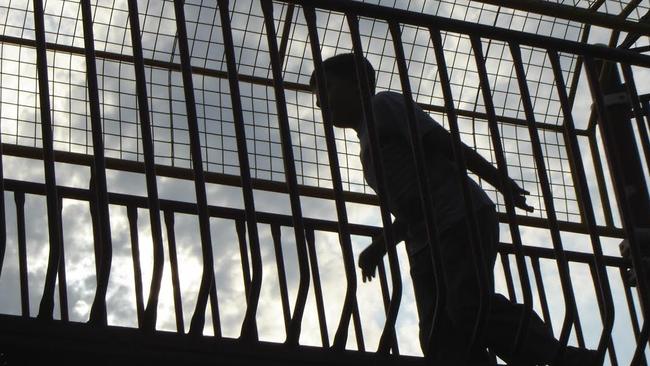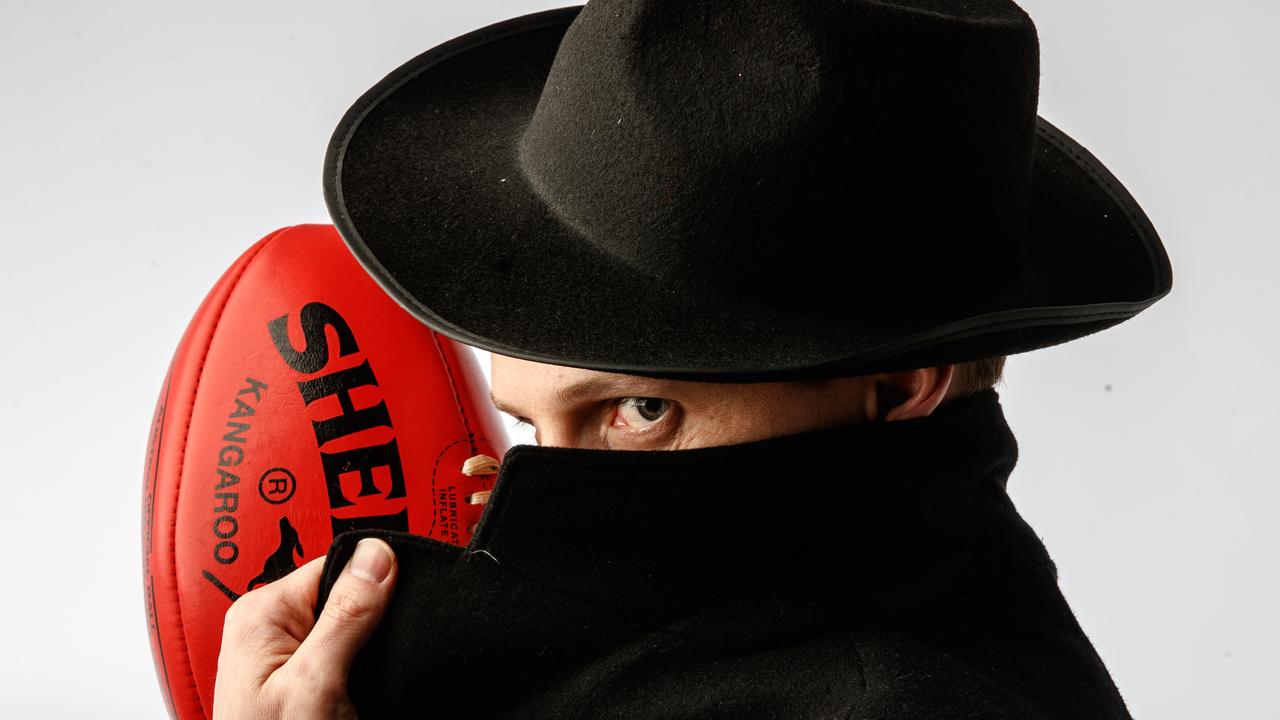Families SA on recruitment drive for people willing to foster kids in care
MORE than 100 willing families are being called on to foster some of the state’s most vulnerable children through a $9 million recruitment drive launched today by the State Government.

News
Don't miss out on the headlines from News. Followed categories will be added to My News.
MORE than 100 willing families are being called on to foster some of the state’s most vulnerable children through a $9 million recruitment drive launched today by the State Government.
It has set aside the money to recruit an extra 130 foster carers over the next three years in a bid to shift abused or neglected children out of state-run homes.
The funds will be shared between five non-government agencies to recruit, assess, train and support new foster parents.
The state’s child protection system is in desperate need of more carers, as it struggles to cope with an influx of children removed from unsafe parents each year.
However, recruitment has proved difficult as potential carers are put off by abuse revelations within Families SA, claims of mistreatment by former foster carers and concerns that abused or neglected children will have very complex support needs.
As part of the recruitment drive, Anglicare SA will trial a new model of “specific child only” foster care, where people can take in an at-risk child whom they already know.
It is hoped applicants for this option will be processed faster than strangers.
Anglicare SA chief executive Peter Sandeman said the model could support up to 70 children.
“It will be available to people to have an existing connection with the child, such as close family friends,” he said.
There are almost 3000 children living in state care, including about 1100 with foster families and another 1100 with other relatives.
Those figures have remained relatively stable, but as more children enter the system the numbers living in state-run homes or emergency accommodation is rising.
About 300 of the state’s most troubled young people are living in group homes and about 120 children spend any given night in hotel rooms or rented apartments, all supervised by paid staff.
Education and Child Development Minister Susan Close said the Government had been running foster carer recruitment drives in regional South Australia for the past six months and would now expand its reach.
Dr Close said there were more than 50 applications for the new round of funding.
“The sad reality in South Australia is that a lack of available foster and kinship carers means we have to rely on temporary commercial arrangements,” she said.
“In circumstances where a child cannot be adequately cared for by their parents, the best alternative is a safe, caring family environment.”
Foster carers are needed for short periods, such as emergency or respite care, on weekends, or long-term until a child turns 18. Carers receive payments to cover the day-to-day, ordinary costs of raising a child, with the amount varying depending on the type of care.
GROWING PAINS: LIFE FOR KIDS IN STATE CARE
THE early years are crucial to a child’s development, but in South Australia more very young kids spend their childhood living in government-run homes instead of with their parents than anywhere else in the nation.
So what is life like for children raised by paid carers, and what is being done to get more of them back into loving homes?
Baby Sophia* lives in a house with two teenage girls she doesn’t know and a rotating roster of paid carers.
Rescued from abusive parents, the 18-month-old was covered in bruises when she arrived at her new home run by the state’s child protection agency. Underweight and developmentally delayed, Sophia had to learn to crawl, walk and talk under the guidance of youth workers more used to dealing with adolescents.
She is one of about 300 children living in 60 such residential care facilities across the state on any given day.
Data released this month shows SA has the highest proportion in the nation of children aged under 12 in state care living in this type of accommodation (11.7 per cent) — because they have nowhere else to go.
Ever-growing numbers of children are being removed from their parents — as substance abuse, mental illness and family violence take an increasing toll — but there are fewer relatives or strangers willing to become foster carers.
This has prompted the State Government to allocate $9 million over the next three years in a bid to recruit about 130 new foster carers. But for now, toddlers, preschoolers and prepubescent teens find themselves living together in households of up to eight, often unrelated, children.
The public has gained a rare insight into their lives in recent weeks through testimony to a royal commission, before former Supreme Court judge Margaret Nyland, examining the state’s child protection system.
The inquiry was sparked by the arrest of former Families SA carer Shannon McCoole — who worked in these state-run homes — on child sex abuse charges. His former colleagues have told how they try to give children in their care as normal an upbringing as possible, while dealing with the extreme and confronting behaviours that often result from abuse or neglect.
The commission heard of on eight-year-old boy who took naked photos of himself on a mobile phone, drew penises all over the house and urinated on the couch. Another boy would “mimic” his father’s abusive behaviour towards his two sisters.
Bedtime can be particularly problematic, as children wet the bed, wake repeatedly in the night screaming or hide under the bed. It can take up to four hours to settle some troubled young ones to sleep.
Many children skip school or are regularly suspended.
Staff often have to physically restrain children who can bite, spit or swear at them or run away from the property.
The commission heard about an eight-year-old boy who would smash windows and punch holes in walls.
“He would make weapons from rocks and sticks ... he was aggressive, he had no fear and he would attempt to hurt you,” a female carer said.
“He would bash his head against a wall. Afterwards he would cry. He does miss his mum a lot.”
The same boy would insist on wearing clothing in the bath and keeping the door open.
“Staff have keys to the bathrooms in case young people lock themselves in to self-harm.
“Children with trauma shouldn’t be expected to behave in the same way as children who have been brought up in a loving environment,” a female carer told the commission.
If trained workers have difficulty managing these children, it is unsurprising that fewer everyday South Australians are willing to take them on as foster parents.
Recruiting more foster families — for the short or long term — is key to unblocking the bottleneck that leaves so many young children in unsuitable living arrangements.
“It certainly appears that in other states they’ve been able to grow foster care, whereas in SA we have not been able to,” says the Guardian for children in state care, Amanda Shaw.
“There are children (in care) who don’t have high or complex needs but they’re nine years old and a foster care placement can’t be found for them.”
Ms Shaw says other states make clear in their policies that children aged under 12 should not be placed in state-run homes and should be given priority for foster placements.
Families SA is acutely aware of the need for more foster carers and is embarking on a recruitment drive — for everything from weekend or respite carers to people willing to take on a child until they turn 18.
Education and Child Development Department child safety chief Etienne Scheepers said young children were housed in state-run homes “only when all other options are unsuitable or unavailable”.
“Sadly, we are seeing substantial growth in the number of children who have to be removed from their parents,” Education and Child Development Department child safety chief Etienne Scheepershe said.
“We are prioritising the recruitment of more foster carers to come forward and offer a vulnerable child a nurturing, stable home.”
* Name changed
DO YOU HAVE WHAT IT TAKES?
MEN or women, singles, couples (including same-sex couples), parents or people who don’t have children can become foster carers.
NOT all carers need to be available fulltime. Foster care can be for short periods, such as emergency or respite care, on weekends, or long-term until a child turns 18.
FOSTER carers must undergo training, criminal record and child protection screenings, a medical check and assessment by a worker from the foster care agency before taking on a child.
CARERS receive payments to cover the day-to-day ordinary costs of raising a child.
For more information phone 1300 2 FOSTER or search “foster care” at www.sa.gov.au


